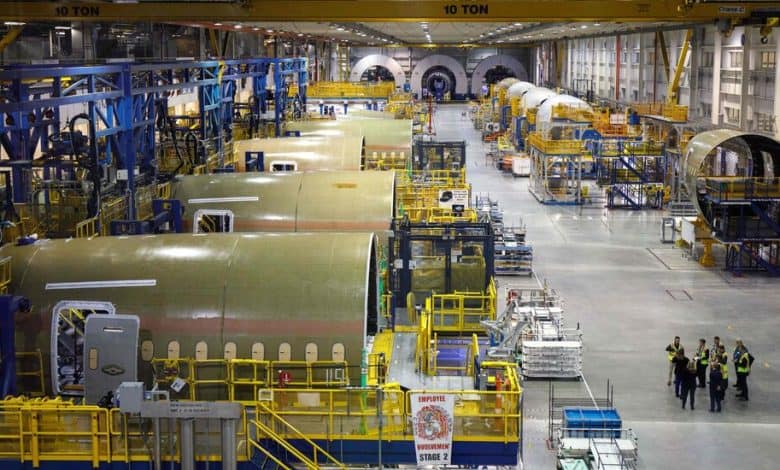F.A.A. Investigating How Counterfeit Titanium Got Into Boeing and Airbus Jets

Some recently manufactured Boeing and Airbus jets have components made from titanium that was sold using fake documentation verifying the material’s authenticity, according to a supplier for the plane makers, raising concerns about the structural integrity of those airliners.
The falsified documents are being investigated by Spirit AeroSystems, which supplies fuselages for Boeing and wings for Airbus, as well as the Federal Aviation Administration. The investigation comes after a parts supplier found small holes in the material from corrosion.
In a statement, the F.A.A. said it was investigating the scope of the problem and trying to determine the short- and long-term safety implications to planes that were made using the parts. It is unclear how many planes have parts made with the questionable material.
“Boeing reported a voluntary disclosure to the F.A.A. regarding procurement of material through a distributor who may have falsified or provided incorrect records,” the statement said. “Boeing issued a bulletin outlining ways suppliers should remain alert to the potential of falsified records.”
The revelation comes at a moment of intense scrutiny of Boeing and the broader aviation industry, which is reeling from a series of mishaps and safety issues. In January, a door panel blew off a Boeing 737 Max 9 jet while it was in flight, prompting several federal investigations. In April, Boeing told the F.A.A. about a separate episode involving potentially falsified inspection records related to the wings of 787 Dreamliner planes. Boeing reported to the F.A.A. that it might have skipped required inspections involving the jet’s wings and that it would need to reinspect some of the Dreamliners still in production.
On May 30, Boeing submitted a plan to the F.A.A. outlining safety improvements it planned to make and committed to weekly meetings with the agency. Dave Calhoun, the Boeing chief executive, is set to testify on Tuesday before a Senate panel on the company’s safety issues.
